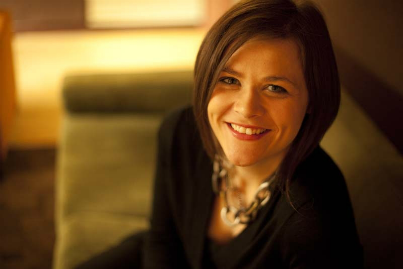by Thomas Pitchford, member of the GSBA Public Policy Task Force
From your perspective as the Chair for the Washington United for
Marriage campaign, what factors you would you attribute to our overall success?
 |
| Photo care of Washington United for Marriage |
We first had to understand the proper spirit in which to
approach working together. By that I mean we knew the only way we could win was
if the community worked together like we have never worked together before. Collaboration
across a broad spectrum of local and national coalition partners was essential,
as was the feeling that we were all working in the same direction. Our
leadership team proved a tremendous asset as they moved immediately to put some
strong leadership parameters in place.
This included both HRC local and national leaders as well as leaders
across a coalition of dedicated organizational partners, including GSBA.
Additionally, facing 32/32 losses nationally, understanding
the opposition was incredibly important. We needed to have a firm understanding
of the range of messages that would be coming from the opposition, and be able
to make the case for why voters should Approve Referendum 74. Persuading voters
to support marriage equality required an entirely different framework than that
needed to pass domestic partnership – and we anticipated would bring on a different
reaction and fight from the opposition.
Many months of planning and hard work resulted in a
tremendous campaign effort launched at first by seven paid staff as we sought
to move the bill through the house and senate. Over the next seven months, that
number would expand to over 60 paid staff members, deployed to work in one of
seven action centers across Washington. Their extensive work resulted in a campaign
field effort unmatched in the history of any campaign in
the state as more than 50,000 volunteers were organized statewide.
Fundraising for the campaign also reflected a power in
numbers – not only in meeting a $12.5M goal, but also through its number of
donors. With the most common gift of $25, this was truly a campaign that captured
the imagination of so many Washingtonians.
We worked closely with our experienced partners from around
the country to frame a message that helped voters understand the importance of
marriage equality in terms of basic human needs. Messaging about love,
commitment and family, and communicating that these are values we all share, really put this
message in perspective for Washingtonians.
We took the lessons from the past losses and used them to make sure we
had a win here in Washington State.
Finally, some of our most significant support came from the
Washington business community. In addition to the generosity of Jeff Bezos,
Bill Gates, Steve Ballmer and so many other business leaders, many Fortune 100
companies across Washington joined us in affirming support for marriage
equality. This was, without doubt, a tremendous influence in our success. As an
employee of Starbucks, I could not be more proud to have their support as well
as the support of so many other companies across the state.
I feel these factors really helped us capture the
imagination of so many people across the state and build what became a
coordinated effort not seen before in Washington.
Let’s talk about the role of the Human Rights Campaign, what
partnerships were made along the way, and what future potential benefit do you
see them providing for Washington’s LGBT community?
 I am extremely proud of the coalition. We all worked in the
same direction, and we all learned a lot along the way.
I am extremely proud of the coalition. We all worked in the
same direction, and we all learned a lot along the way.
HRC was the single largest organizational contributor, with
over $1.5M in financial and staffing contributions. Through working with our
coalition partners we were able to build the infrastructure needed to make
marriage equality in Washington a reality. This included the work of Freedom to Marry at
the national level, along with so many organizations including but not limited
to ACLU of WA, Pride Foundation, Planned Parenthood Votes NW, ERW, Legal
Voice, UFCW21, SEIU, and others who, without their involvement this would have
not been possible.
In terms of our future here in Washington, we have built a
significant coalition united around this effort. And this also presents a
tremendous opportunity for us to continue to work on other issues affecting the
LGBT community, something I have a great desire to see happen. At this
morning’s Equal Rights Washington breakfast, Governor-Elect Inslee said it
best: “This is the end of the beginning.” We have leveled the playing field in
many ways, but there is still much left to be done. For now, we have an
opportunity to step back and take a collective breath – and identify what’s
next for Washington.
For the marriage movement, I believe HRC could use
Washington as a model, and through building strong local partnerships pay those
lessons learned forward, in particular for the marriage equality work soon
happening in Hawaii, Rhode Island, and Illinois.
Lacey All is the Director of Strategic Talent Initiatives at Starbucks Coffee Company and served as the Chair of Washington United for Marriage. She also is also on the Board of Directors for the Human Rights Campaign.

No comments:
Post a Comment